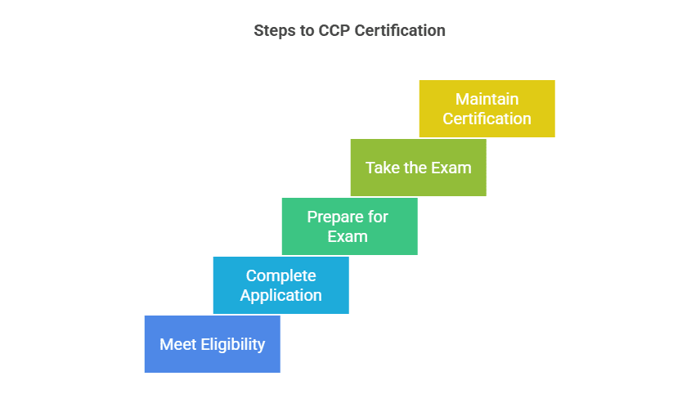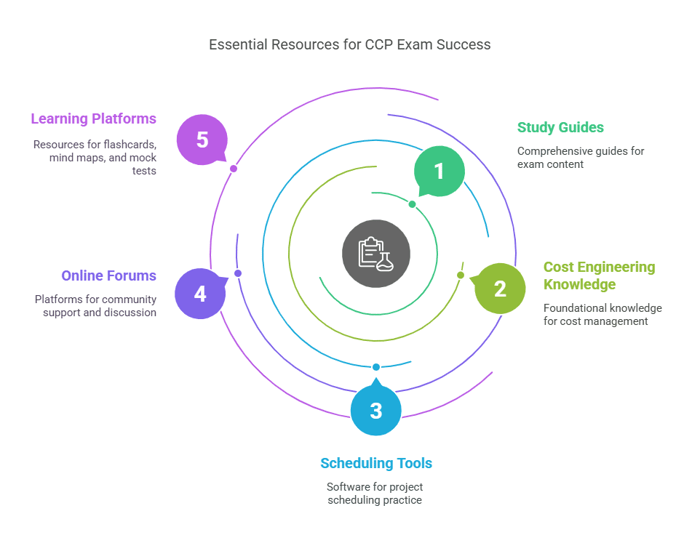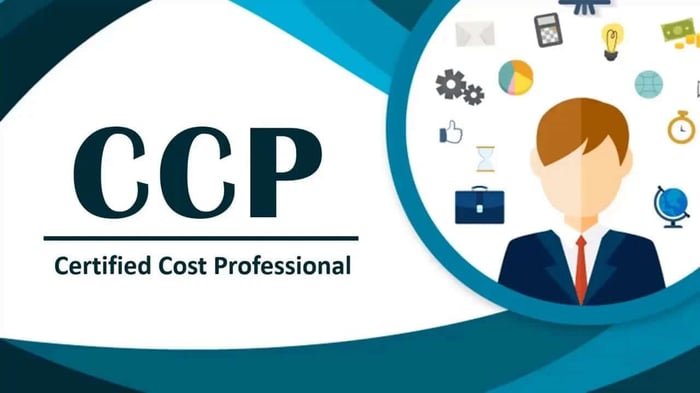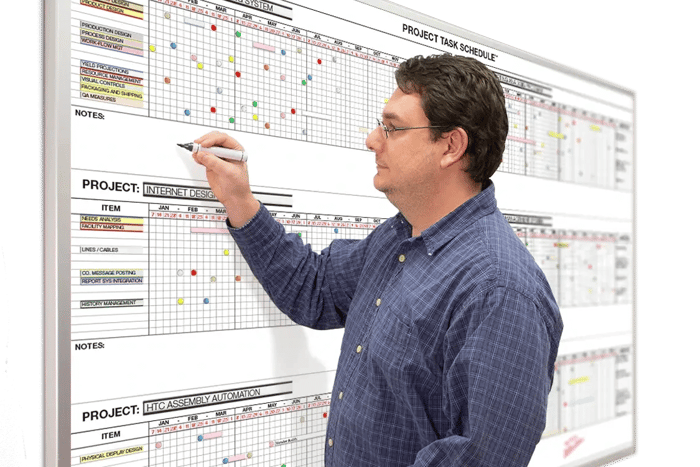Table of Contents
- 🔍 Understanding the Certified Cost Professional (CCP) Certification: Step-by-Step Guide
- 📈Certified Cost Professional (CCP) Certification vs. Other Cost-Related Certifications
- 📚 How to Prepare for the CCP Exam
- 💰 Cost Breakdown of the CCP Certification
- 📊 Cost Engineering vs. Cost Estimating: What’s the Difference?
- 🧾 Eligibility Requirements
- 📅 CCP Exam Prep Timeline & Study Strategy (Week-by-Week)
- 📚 Top Resources & Tools for CCP Exam Prep
- 📈 Market Demand & Job Trends for CCPs in 2025
- 🧠 Final Thoughts
- FAQs
The Certified Cost Professional (CCP) certification is a globally recognized credential offered by AACE International that validates expertise in cost and project controls. It is ideal for professionals in industries like construction, manufacturing, engineering, and energy who manage project costs, schedules, and forecasting. Think of it as a superpower badge for cost engineers and estimators.

🎯 Why Is Certified Cost Professional (CCP) Certification Important in 2025?
In today’s data-driven project environments, being certified isn't a luxury—it's essential. CCP-certified professionals are trusted to make accurate financial projections, perform risk analysis, and optimize project investments. With economic pressures rising and budgets tightening, companies seek certified cost pros to reduce waste and maximize ROI.
Pro Tip: Many professionals starting their journey often look for the easiest project management certification to build foundational knowledge before pursuing advanced designations like CCP.
🔍 Understanding the Certified Cost Professional (CCP) Certification: Step-by-Step Guide
The process to achieve Certified Cost Professional (CCP) certification can seem overwhelming, but breaking it down into manageable steps makes it achievable. Here’s a quick step-by-step guide:

Meet Eligibility Criteria: Candidates must have at least 8 years of cost engineering or related experience or a combination of education and experience. For those with a relevant degree, the requirement may be reduced to 4 years.
Complete Application: Submit an online application through AACE International’s certification portal. Ensure you provide detailed professional experience and academic qualifications.
Prepare for the Exam: Utilize resources like AACE’s official study materials and recommended books to prepare. Consistency in studying is key.
Take the Exam: The exam is computer-based, consisting of multiple-choice questions covering areas such as cost estimating, planning, and control.
Maintain Certification: Once you achieve your CCP, maintain your certification by earning professional development units (PDUs) through continuing education.
🛠️ Core Skills Covered in the Certified Cost Professional (CCP) Certification Program
Cost estimating and control
Planning and scheduling
Project management and cost engineering
Economic analysis and risk assessment
Cost forecasting and financial reporting
This program ensures you can create realistic budgets, track variances, and support data-driven project decisions.
🧠 Who Should Get the CCP Certification?
Cost engineers & analysts
Quantity surveyors
Project managers
Construction estimators
Finance & procurement professionals
Whether you’re climbing the ladder or pivoting to project finance, CCP sets you apart.
📈Certified Cost Professional (CCP) Certification vs. Other Cost-Related Certifications
| Feature | CCP by AACE | PMP by PMI | CCE by AACE |
|---|---|---|---|
| Focus | Cost Engineering | Project Management | Cost Estimating |
| Ideal for | Engineers, PMs | General PMs | Estimators |
| Industry Recognition | High | Very High | Moderate |
| Requires Work Experience? | Yes (8 years) | Yes (3 years) | Yes (4 years) |
📚 How to Prepare for the CCP Exam
Understand the Body of Knowledge (BoK): Focus on AACE’s Total Cost Management Framework.
Use AACE Study Guides & Manuals: These are gold. Don't skip them.
Join Study Groups or Forums: Peer insights = prep magic.
Practice with Mock Exams: Real exam format, reduced stress.
Attend AACE Workshops: Boosts learning & networking.
💰 Cost Breakdown of the CCP Certification
| Item | Cost (USD) |
|---|---|
| Application Fee | $250 |
| Exam Fee (Members) | $500 |
| Exam Fee (Non-members) | $625 |
| Renewal (every 3 years) | $85 |
📊 Cost Engineering vs. Cost Estimating: What’s the Difference?
While often used interchangeably, Cost Engineering and Cost Estimating are distinct disciplines.
Here's a quick comparison:
| Aspect | Cost Engineering | Cost Estimating |
|---|---|---|
| Focus | Lifecycle cost analysis & optimization | Forecasting cost of specific elements |
| Skills Required | Risk analysis, economic analysis, and planning | Historical data analysis, benchmarking |
| Role of CCP | Core role | Integral but more specialized |
CCPs are typically involved in both roles, but their broader expertise in project controls makes them more aligned with the cost engineering side of the equation.
🧾 Eligibility Requirements
Minimum 8 years of cost experience, or
4 years of experience + accredited 4-year degree
Submit a technical paper demonstrating cost expertise
Pass a written exam (multiple-choice + essay questions)
📍 Global Reach and Recognition
Certified Cost Professional (CCP) Certification is respected in 100+ countries, especially in energy, construction, and engineering projects. It’s frequently required by top EPC firms and government tenders worldwide.
🚀 Career Impact of Becoming a CCP
According to industry reports:
CCPs earn up to 25% more than non-certified peers
Preferred in project finance and capital projects
Opens doors to international consulting roles
🔗 Related Certifications to Explore
If CCP interests you, consider expanding your credentials with:
PSP (Planning & Scheduling Professional)
EVP (Earned Value Professional)
CCE (Certified Cost Estimator)
📅 CCP Exam Prep Timeline & Study Strategy (Week-by-Week)
Preparing for the CCP exam requires strategic planning. Here’s a sample 8-week timeline to help candidates structure their study effectively:
| Week | Focus Area |
|---|---|
| 1 | Understand exam structure & tools |
| 2-3 | Dive deep into cost estimating concepts |
| 4 | Study planning & scheduling techniques |
| 5 | Learn cost control and performance |
| 6 | Practice with mock exams & case studies |
| 7 | Review weak areas & refine notes |
| 8 | Final revision + time management tips |
Studying consistently for 8–10 hours per week during this period improves success rates significantly.
📚 Top Resources & Tools for CCP Exam Prep
Success in the CCP exam depends on leveraging the right resources. Here are must-haves:

AACE International’s CCP Study Guide
Skills & Knowledge of Cost Engineering 7th Edition
Primavera P6 and Microsoft Project for scheduling practice
Online forums like Reddit’s r/projectmanagement and AACE’s official community
Flashcards, mind maps, and mock tests from Udemy, Coursera, and ExamPrep platforms
Using a blend of books, tools, and peer collaboration provides a 360-degree prep experience.
📈 Market Demand & Job Trends for CCPs in 2025
The demand for Certified Cost Professionals is on the rise, especially in sectors like construction, aerospace, oil & gas, and infrastructure planning.
According to LinkedIn and Glassdoor job analytics, CCP-tagged job postings have increased by 18% YoY, with high-paying opportunities clustered in regions like Texas, California, the UAE, and Southeast Asia.
In 2025, cost management roles are expected to grow as companies seek to improve cost transparency and ROI on capital investments. Holding a CCP places you in a future-proof, high-demand career path.
Bonus Read: As digital transformation continues, it's fascinating to see how blockchain is transforming the validation and credibility of certifications such as the CCP.
🧠 Final Thoughts
The Certified Cost Professional (CCP) credential is a serious investment for serious project professionals. Whether you're looking to level up your career, win higher-paying jobs, or simply want that cost wizard title, CCP is your go-to.
👉 Ready to explore more high-impact project management certifications? APMIC offers a comprehensive suite of project management certifications tailored to future-forward professionals.





